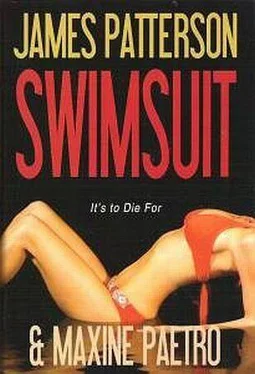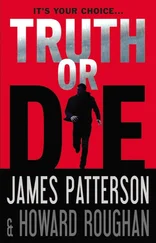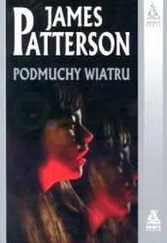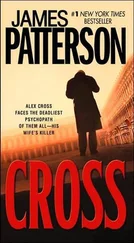I? have time for you.
Together, the watches were worth a hundred thousand euros. Not worth the risk, though. He left them on the table. A nice tip for the maid, no?
Gina had used her credit card, so Henri left the room, closing the door behind him. He walked across the forecourt without incident, got into his rented car, and drove to the airport.
By Sunday afternoon, I was back in my bunker, back to my book. I had a month's supply of junk food in the cupboard and was bent on finishing the expanded chapter outline for Zagami, who was expecting it in his e-mail box by morning.
At seven p.m., I turned on the tube: 60 Minutes had just started, and the Barbados murders were headlining the show.
Morley Safer was speaking: “Forensic experts say that when combined with the five Maui murders, the deaths of Wendy Emerson and Sara Russo are part of a pattern of brutal, sadistic killings, with no end in sight.
“Right now, detectives around the world are reexamining unsolved murder cases, looking for anything that can lead to a serial murderer who has left no known witnesses, no living victims, not a trace of himself behind. CBS correspondent Bob Simon talked with some of those detectives.”
Film clips came on the screen.
I watched retired cops interviewed in their homes and was struck by their somber expressions and quavering voices. One cop in particular had tears in his eyes as he displayed photos of a murdered twelve-year-old whose killer had never been found.
I turned off the set and screamed into my hands.
Henri was living inside my brain – in the past, the present, and the future. I knew his methods, his victims, and now I was adapting my writing to the cadence of his voice.
Sometimes, and this really scared me – sometimes I thought that I was him.
I uncapped a beer and drank it down in front of the open fridge. Then I wandered back to my laptop. I went online and checked my e-mail, something I hadn't done since leaving with Mandy for the weekend.
I opened a dozen e-mails before I came to one with the subject heading “Is everybody happy?” The e-mail had an attachment.
My fingers froze on the keys. I didn't recognize the sender's address, but I blinked at the heading for a long time before I opened the message: “Ben, I'm still working like a madman. Are you?”
The note was signed “H.B.”
I touched the strip of bandage stuck to my left side and felt the small device that was beaming my location to Henri's computer.
Then I downloaded the attachment.
The video opened with a burst of light and an extreme close-up of Henri's digitally blurred face. He turned and walked toward a canopied bed in what looked to be a very expensive hotel room. I noted the elaborate furnishings, the traditional European fleur-de-lis pattern that was repeated in the draperies, carpet, and upholstery.
My eyes were drawn to the bed, where I saw a naked woman lying facedown, hands stretched out in front of her, tugging at the cords that tied her wrists to the headboard.
Oh no, here we go, I thought as I watched.
Henri got into bed next to her, and the two of them spoke in offhand tones. I couldn't make out what they were saying until she raised her voice sharply, asking him to untie her.
Something was different this time.
I was struck by the lack of fear in her voice. Was she a very good actor? Or had she just not figured out the climax?
I hit the Pause button, stopping the video.
Henri's ninety-second cut of Kim McDaniels's execution flashed into my mind in sharp detail. I would never forget Kim's postmortem expression, as if she was in pain even though her head had been detached from her body.
I didn't want to add another Henri Benoit production to my mental playlist.
I didn't want to see this.
Downstairs, an ordinary Sunday night was unfolding on Traction Avenue. I heard a street guitarist playing “Domino” and tourists applauding, the whoosh of tires on pavement as cars passed under my windows. A few weeks ago, a night like this, I might have gone down, had a couple of beers at Moe's.
I wished I could do it now. But I couldn't walk away.
I pressed the Play button and watched the moving pictures on my computer screen: Henri telling the woman that she cared only about her own pleasure, laughing, saying, “Always a price.” He picked up the remote control and turned on the TV.
The hotel welcome screen flashed by, and then an announcer on BBC World News gave a sports update, mostly football. Another announcer followed with a summary of various international financial markets, then came the breaking news of the two girls who'd been killed in Barbados.
Now, on my computer screen, Henri shut off the TV. He straddled the naked woman's body, put his hands around her neck, and I was sure that he was going to choke her – and then he changed his mind.
He untied her wrists, and I exhaled, wiped my eyes with my palms. He was letting her go – but why?
On screen, the woman said to Henri, “I knew you couldn't do it.” Her English was accented. She was Italian.
Was this Gina?
She got out of the bed and strolled toward the camera, and she winked. She was a pretty brunette in her late thirties, maybe forty. She headed to an adjoining room, probably the bathroom.
Henri got out of the bed, reached down, and pulled a gun from a bag that looked to be a 9-millimeter Ruger with a suppressor extending the muzzle.
He walked behind the woman and out of camera range.
I heard muffled conversation, then the phfffft sound of the gun firing through the suppressor. A shadow passed over the threshold. There was a soft, heavy thud, two more muffled shots, then the rush of running water.
Except for the empty bed, that's all I saw or heard until the screen went black.
My hands shook as I played the video again. This time I was looking for any detail that could tell me where Henri had been when he had surely killed this woman.
On my third viewing, I saw something I'd missed before.
I stopped the action when Henri turned on the TV. I enlarged the picture and read the welcome screen with the name of the hotel at the top of the menu.
It had been shot on an angle, and it was damned hard to make out the letters, but I wrote them down and then went out to the Web to see if such a place existed.
It did.
I read that the Château de Mirambeau was in France, in the wine country near Bordeaux. It had been built on the foundations of a medieval fortress founded in the eleventh century, reconstructed in the early 1800s, and turned into an expensive resort. Pictures on the hotel's Web site showed fields of sunflowers, vineyards, and the château itself, an elaborate fairy-tale construction of vaulted stone, capped with turrets surrounding a courtyard and formal gardens.
I searched the Web again, found the football scores and the market closings that I'd seen on the TV in Henri's room.
I realized that this video had been shot on Friday, the same night Amanda had brought home Cornish game hens and I had learned about the deaths of Sara and Wendy.
I put my hand over the bandage against my ribs and felt the banging of my heart. It was all clear to me now.
Two days ago, Henri was in France, about a five-hour drive from Paris. This coming week marked the beginning of September. Henri had told me that he always went to Paris in September.
I had a pretty good idea where he might be.
I slammed down the lid of my laptop, as if I could actually shut out the images Henri had left to my imagination.
Then I called Amanda, talking rapidly as I threw clothes into a suitcase.
Читать дальше












